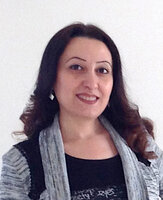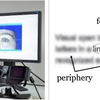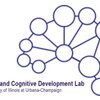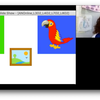
Cognitive Psychology
The faculty in cognitive psychology have research programs focused on human memory, language processing, categorization, reasoning, computational modeling, and cognitive aging. The cognitive psychology program emphasizes acquiring exceptionally strong research skills in a domain chosen by the student, working closely with individual faculty members, and using multiple dependent measures to study a given area. Faculty members and students in the cognitive psychology program have research interests and collaborations that overlap with those in every other program area in the Department. In addition to strong intersections with the Attention and Perception and Cognitive Neuroscience programs, there are also collaborations with social, developmental, and quantitative psychologists.
Curriculum
Cognitive psychology faculty offer a large array of graduate courses that cover the field of cognitive psychology in an exceptionally comprehensive manner. Students develop a specialized course of study designed to provide expertise in their particular areas of interest, but also acquire breadth in the field through coursework outside the program area as well as through interdisciplinary collaborations. All students complete a first-year project that is presented to the faculty at a weekly research seminar attended by all students and faculty in the program. By the end of the third year, students will have completed the Comprehensive Examination as well as the majority of their coursework. The material to be covered on the Comprehensive Examination is jointly decided by the student and his or her faculty advisor. The remaining years in the program are devoted to completing a dissertation, publishing data collected earlier, as well as developing depth and breadth in preparation for a career in academia, industry, or government service, with the majority of students entering academia.
Facilities and Resources
The facilities associated with cognitive psychology are superlative. Every faculty member has substantial laboratory space dedicated to his or her research program in either the Psychology Department or Beckman Institute. All students have access to a vast array of state-of-the-art technologies and methodologies as well as a high-end computing environment. Tools available to study cognition, in addition to traditional behavioral methods, include a research-dedicated head-only 3 Tesla scanner for functional neuroimaging, as well as optical imaging, EEG/ERP, and eye-tracking. Students have access to many different subject populations, including older adults, children, and clinical populations. The technical resources available to students in cognitive psychology are among the most comprehensive and best in the world for the study of human cognition.
Affiliated Departments, Programs, and Institutes
Most faculty members in cognitive psychology have appointments in the Beckman Institute for Advanced Science and Technology. In addition, faculty members collaborate with faculty members in other Departments at UIUC, including Linguistics, Engineering, Educational Psychology, Kinesiology, the Genomics Institute.
Faculty working in Cognitive Psychology


















Related News
- Congratulations to Psychology Professor Kara Federmeier, who has been elected a Fellow of the American Association for the Advancement of Science! Federmeier is an expert in cognitive neuroscience,...
- Dr. LaTasha R. Holden, an Assistant Professor in Cognitive Psychology from...
- The New Frontiers Initiative, in collaboration with the Blue Waters Project, recently selected their 2021 New Frontiers Graduate Fellows. Fellows receive a stipend, tuition allowance, travel funds,...





